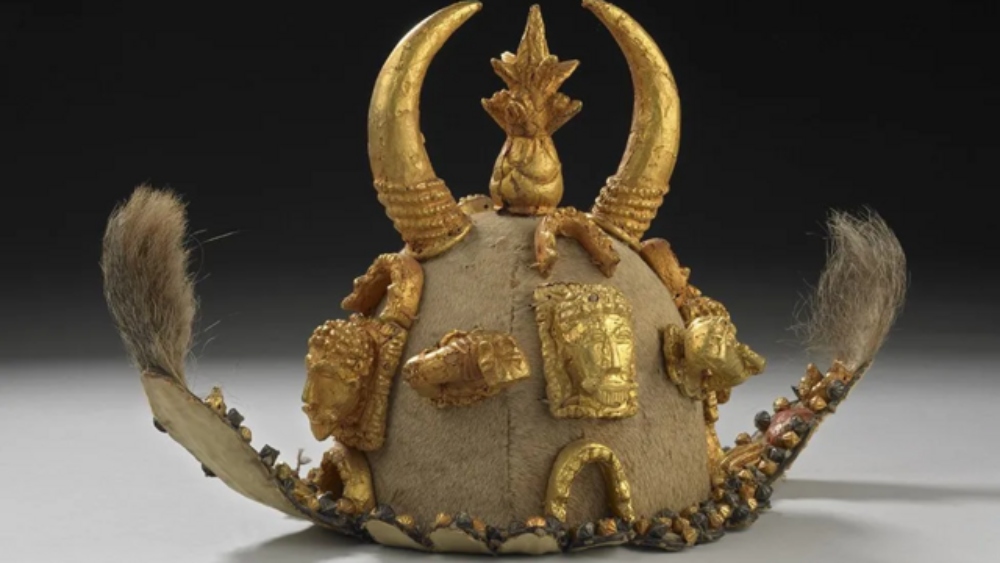Comments
- No comments found

After more than 150 years, the UK has repatriated dozens of artifacts looted from Ghana, marking a significant step in rectifying historical injustices.
Most of the artifacts, comprising 32 gold and silver items, have been returned to Ghana on a long-term loan basis by both the Victoria & Albert Museum (V&A) and the British Museum. These objects were unlawfully taken during the 19th-century conflicts between the British and the powerful Asante people, specifically from the court of the Asante king, known as the Asantehene.
The return of these artifacts holds immense cultural and symbolic significance for Ghana. Among the returned items are a gold peace pipe, a sword of state, and gold badges worn by officials tasked with cleansing the soul of the king. These objects are integral to the Asante royal government, believed to embody the spirits of former Asante kings. Their repatriation is not merely a matter of restitution but also a restoration of identity and heritage for the Ghanaian people.
Negotiated directly with the Asante king and not the Ghanaian government, the loan agreement stipulates a three-year term with the possibility of extension for another three years. The artifacts are currently safeguarded in Ghana and are set to be formally received by the current king, Otumfuo Osei Tutu II, who will oversee their display at the Manhyia Palace Museum in Kumasi, the capital of the Ashanti region. This exhibition will coincide with celebrations marking the silver jubilee of King Osei Tutu II's reign.
The return of these artifacts underscores a broader discourse surrounding the repatriation of cultural heritage items acquired through colonialism and imperialism. While some national museums in the UK are legally barred from permanently repatriating contested items, loan agreements such as this offer a compromise, allowing objects to return to their countries of origin temporarily. Both the V&A and the British Museum have expressed their satisfaction with facilitating this cultural collaboration and are pleased to have returned the artifacts on loan.
The significance of this repatriation extends beyond the realm of cultural heritage. It reflects a growing acknowledgment of the need to address historical injustices and reconcile colonial legacies. The Asante people, renowned for their military prowess and economic prosperity, were subjected to exploitation and plunder during the colonial era. The return of these artifacts serves as a gesture of recognition and reconciliation, acknowledging the wrongs of the past and striving for a more equitable future.
It's important to state that the repatriation of these artifacts also raises broader questions about restitution and accountability. The return of looted cultural heritage items is not merely a matter of returning objects; it is about acknowledging and redressing historical injustices, promoting cultural diversity, and fostering mutual respect and understanding among nations. As debates continue over the repatriation of other contested artifacts, including the Benin Bronzes and the Elgin Marbles, it is imperative to recognize the complexities inherent in addressing colonial legacies and charting a path forward that prioritizes justice, equity, and collaboration.
Ultimately, the return of these Asante artifacts represents a significant milestone in the ongoing efforts to confront the legacy of colonialism and promote cultural heritage preservation and restitution. It is a testament to the power of dialogue, cooperation, and mutual respect in addressing historical injustices and building a more inclusive and equitable future for all.
Leave your comments
Post comment as a guest